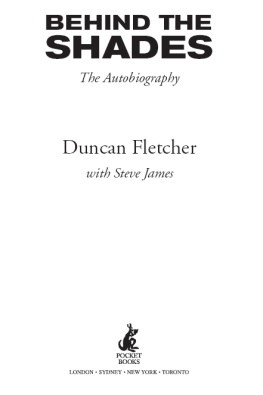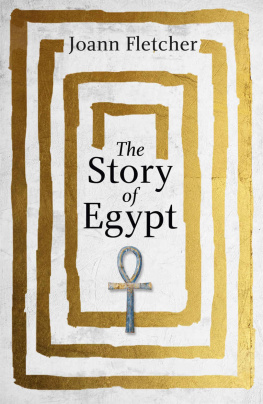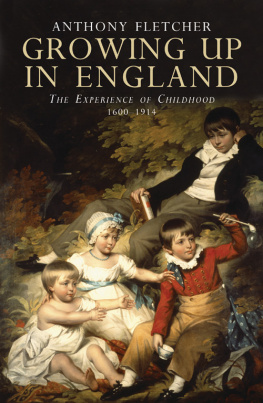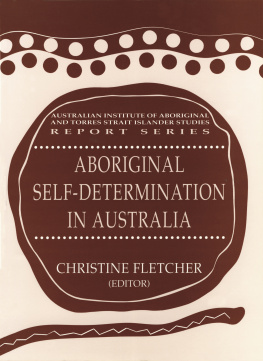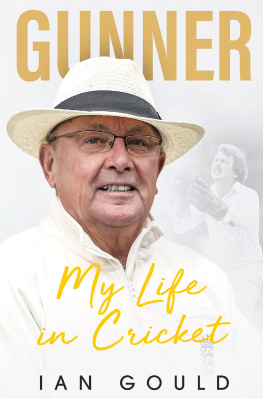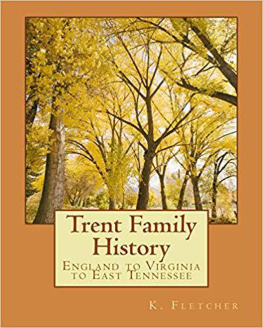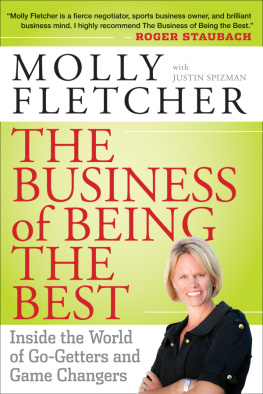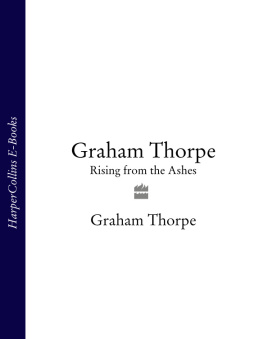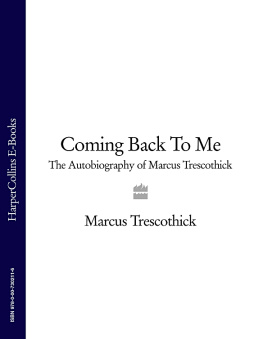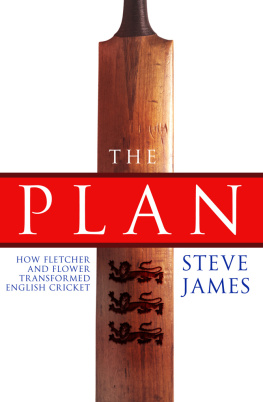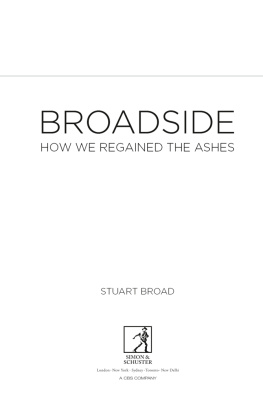This book is copyright under the Berne Convention.
No reproduction without permission.
All rights reserved.
The right of Duncan Fletcher to be identified as the author of this work has been asserted by him in accordance with sections 77 and 78 of the Copyright, Designs and Patents Act, 1988.
A CIP catalogue for this book is available from the British Library.
You may have noticed that whenever I was interviewed as England coach there were a number of phrases which I used rather frequently. Coming to the party was probably the first one picked up onmy way of describing how a player should contribute sufficiently to the team effortand there were to be many more.
One phrase I use quite frequently is one hell of a. That is generally for more private conversations but if I attach that to a noun, it is my way of saying that it is so special that I struggle to describe it. So if I say that I had one hell of an upbringing, then you might begin to understand what I mean.
I grew up on Carswell Farm, which is near the town of Nyabira, some thirty kilometres north out of Harare on the road to Lake Kariba. So, unsurprisingly, it was a typically African upbringing: outdoors and active, at times toughsometimes even extremely hard workbut certainly not closeted or restricted, and importantly it issued me with responsibility and authority at a young age, as well as immediately settling me into a team environment. That was inevitable because I was one of six children, five boys and a girl; all coincidentally with Christian names ending in nJohn, Colin, Duncan, Gordon, Allan and Ann, born in that orderand all mad keen on sport. Ann had little choice but to be brought up as a tomboy, joining in all the sports we played, even the impromptu rugby matches on the lawn with the African labourers sons, where she would act as scrum half. But, to the great pleasure of the rest of us, she became a brilliant sportswoman in her own right, playing hockey for South Africa and then captaining the Zimbabwe womens team to gold in the 1980 Moscow Olympics.
There was little doubt, though, that it was Colin, the second eldest, who possessed the most sporting talent. I genuinely believe that he is one of the most talented sportsmen I have ever known. A big statement when you consider some of the top sportsmen I have had the pleasure to encounter since, but I stand by it. He was almost too talented, the ease with which he performed at every sport meaning that he found it mentally difficult to fulfil his potential in any one of them.
But he is one of only two pupils ever to have achieved full colours in four sports at Prince Edward School, Salisbury (or Harare as it is now), which all the Fletcher brothers attended; Ann going to Prince Edwards sister school, the Girls High School, where our mother, Mary, had once been head girl. Colins colours came in cricket, hockey, rugby and squash, and he played for Rhodesia Schools at cricket and hockey, and later went on to play cricket for Transvaal B, as well as being Rhodesian Schools squash champion and captain of the Knights squash team to tour the UKin essence the South African team, but it could not be termed so because of the political situation at the time. He now lives in Switzerland, whose national team he has represented at squash.

